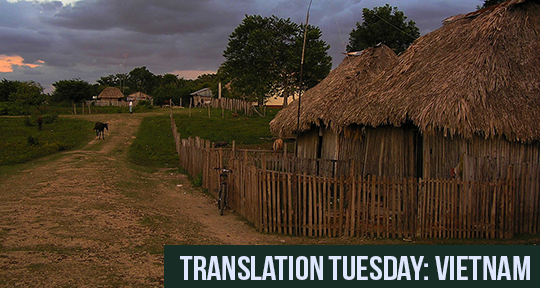This week, read about the annual conference of the American Literary Translators Association, the new pathways Vietnamese writers and translators are helping to pave in the Anglosphere, as well as the new accolades, conversations, and impact of Central American literatures.
Thuy Dinh, Editor-at-Large, reporting for Vietnam and the Vietnamese Diaspora
Han Kang’s recent Nobel win has spurred lively discussions among writers in Vietnam and the diasporic community on how to sustain and promote Vietnamese literature beyond its national borders. Thiên Kim, co-founder of UK-based Major Books, believes it’s not a quality issue but the scarcity of works being translated into English that has prevented Asian literature from being more widely appreciated.
To rectify the situation, Major Books has teamed up with talented translators Nguyễn Bình, Đinh Ngọc Mai, and Khải Nguyễn, among others, to present a “well-rounded portrait of Vietnam while preserv[ing] the integrity and … originality of each [translated] work.” Titles to be published in 2025-2026 range from a new translation of a beloved national epic (Nguyễn Du’s The Tale of Kiều), a broad satire on sexual mores during the French colonial era (Vũ Trọng Phụng’s Making a Whore), a gritty exploration of contemporary LGBQT culture (Vũ Đình Giang’s Parallel), to a biting social critique via the lens of folklore and existentialism (The Young Die Old by Nguyễn Bình Phương). READ MORE…



